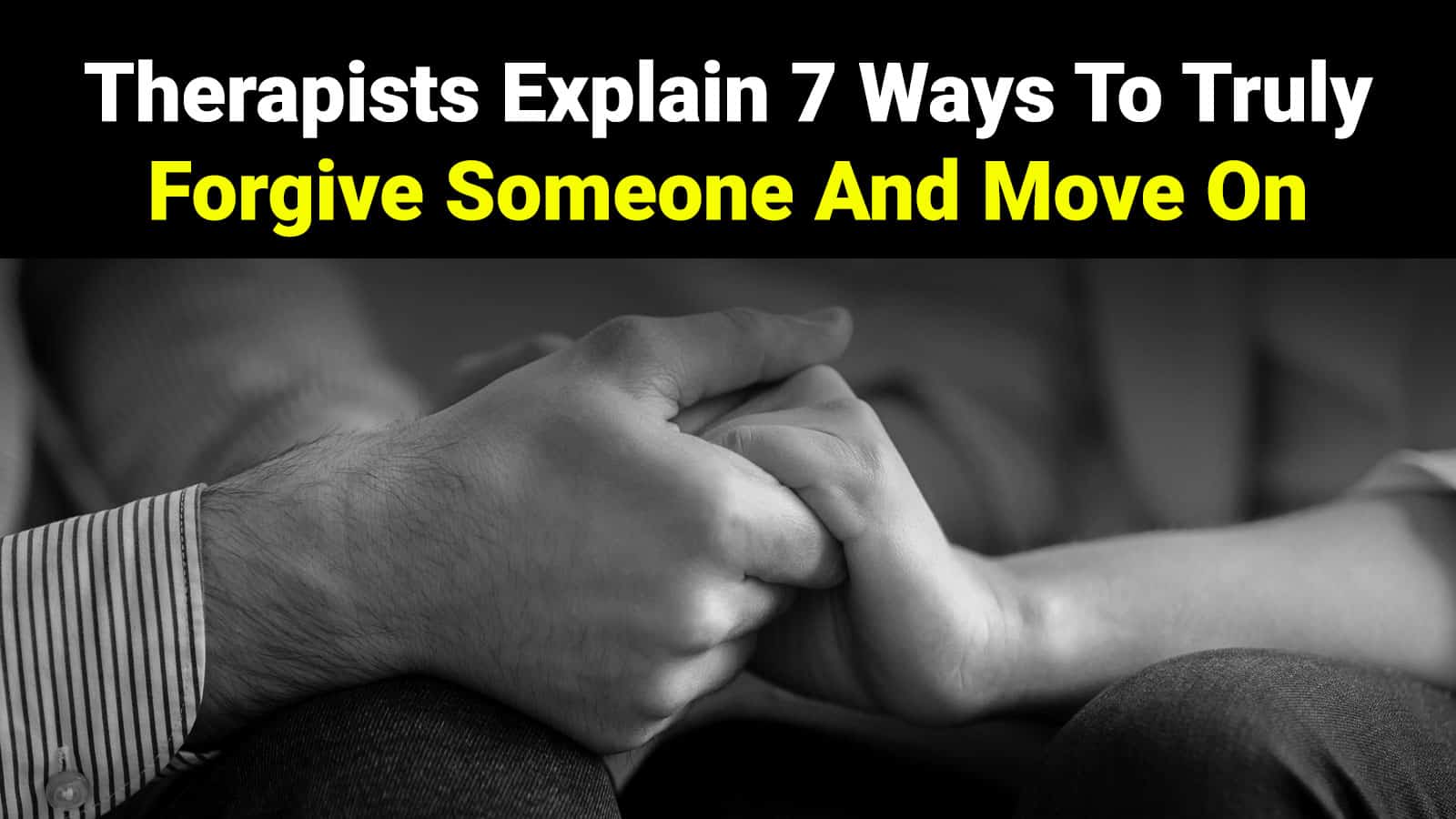How to Forgive Someone: A Step-by-Step Guide to Healing and Letting Go
How to Forgive Someone: A Step-by-Step Guide to Healing and Letting Go
Blog Article
Comprehending the Relevance of Forgiveness in Recovery Relationships
Forgiveness is commonly checked out as a basic act of allowing go, yet its importance in healing connections prolongs much beyond mere absolution. It acts as an essential system for psychological release, enabling individuals to browse the complexities of discomfort and bitterness. Recognizing the nuanced differences in between mercy and reconciliation can brighten the path towards much healthier interactions. As we check out the multifaceted benefits of mercy, one have to think about just how these principles can transform not just individual relationships however additionally the broader social material. What continues to be to be uncovered is the profound effect mercy can have on private development and public consistency - The importance of forgiveness.
The Interpretation of Mercy
Although forgiveness is frequently viewed as a basic act of releasing, its interpretation incorporates a complex interplay of emotional and psychological processes. At its core, forgiveness is the conscious decision to launch sensations of animosity or revenge towards a specific or team that has actually triggered injury. This procedure is not simply regarding absolving the wrongdoer; rather, it includes a profound emotional transformation that can lead to personal development and recovery.
Mercy is diverse, typically defined by an individual's internal battle to integrate their discomfort with the wish for tranquility. It requires recognizing the misdoings devoted, refining the connected emotions, and inevitably deciding to relocate forward without the burden of animosity. This choice usually requires a cognitive shift, where one reframes their understanding of the wrongdoer and the transgression, enabling compassion and comprehending to emerge.
Notably, mercy does not imply pardoning the habits or forgetting the crime; it is a calculated act that prioritizes psychological wellness. By defining mercy in this manner, we can value its role in facilitating much healthier relationships and cultivating emotional strength, setting the phase for deeper expedition into its advantages.
Emotional Advantages of Forgiveness
Mercy offers substantial psychological benefits that can greatly affect a person's mental wellness and general wellness. When a person picks to forgive, they actively launch feelings of resentment, rage, and bitterness, which can otherwise create a hefty emotional problem. This launch commonly results in a decrease in stress and stress and anxiety, advertising a feeling of tranquility and emotional stability.
Moreover, mercy cultivates an enhanced capability for compassion and concern. By recognizing the perspective of the culprit, people can grow a deeper emotional durability, which boosts their capacity to deal with future challenges. This process not only improves emotional policy however likewise adds to an extra favorable expectation on life.
In addition, flexible others can reinforce one's self-worth and self-regard. It permits people to redeem their individual power, damaging devoid of the adverse cycles of victimhood - The importance of forgiveness. This newly found empowerment can cause healthier psychological actions and more powerful social relationships
Forgiveness vs. Settlement
The difference in between forgiveness and reconciliation is important in comprehending the dynamics of healing partnerships. Mercy is an interior process wherein an individual picks to allow go of animosity and unfavorable feelings towards a person that has caused injury. It is mostly a personal journey, concentrated on psychological release and self-healing, allowing one to progress without carrying the worry of past complaints.
On the other hand, settlement involves restoring and restoring the partnership to a state of count on and common respect. This procedure typically calls for open communication, energetic involvement from both events, and a commitment to resolving the underlying problems that brought about the dispute. While mercy can occur separately, settlement requires the readiness of both individuals to take part in discussion and work toward a common understanding.
It is essential to keep in mind that mercy does not always cause settlement. An individual may forgive an additional without opting to bring back the partnership, specifically if count on has actually been irrevocably harmed or if the partnership is deemed undesirable. Recognizing this distinction allows individuals to browse their feelings successfully and make educated choices concerning their relationships.
Steps to Cultivate Forgiveness
Cultivating mercy is a purposeful process that includes a number of vital actions focused on helping with emotional recovery. The very first step is recognizing the discomfort created by the offense. Recognizing one's feelings is vital, as it enables people to refine their feelings really.
Next, showing on the occurrence and recognizing its influence can provide quality. This representation should include examining the motivations behind the offender's activities and identifying that every person is imperfect.
The 3rd step includes making a conscious decision to forgive. This choice is crucial, as it represents a determination find to let go of resentment and progress.
Ultimately, revealing feelings in a constructive manner can be beneficial - The importance of forgiveness. Whether via journaling, chatting with a trusted buddy, or seeking treatment, expression of emotions can aid in the mercy journey
Real-Life Examples of Mercy

In another instance, a close-knit team of close friends encountered a considerable break after one member inadvertently shared a private trick. Rather of nurturing bitterness, the influenced good friend made a decision to forgive, comprehending the value of valuing the friendship over the error. This choice motivated open dialogue and eventually reinforced their connection.

Final Thought
Finally, forgiveness plays a crucial duty in the healing of connections by promoting the release of negative emotions and cultivating empathy. By comparing mercy and reconciliation, individuals can participate in a positive procedure that boosts emotional health. Executing steps to cultivate forgiveness can result in transformative results, reinforcing links and promoting a supportive atmosphere. Ultimately, the technique of mercy works as a driver for individual growth and the nurturing of healthier social characteristics.

Report this page